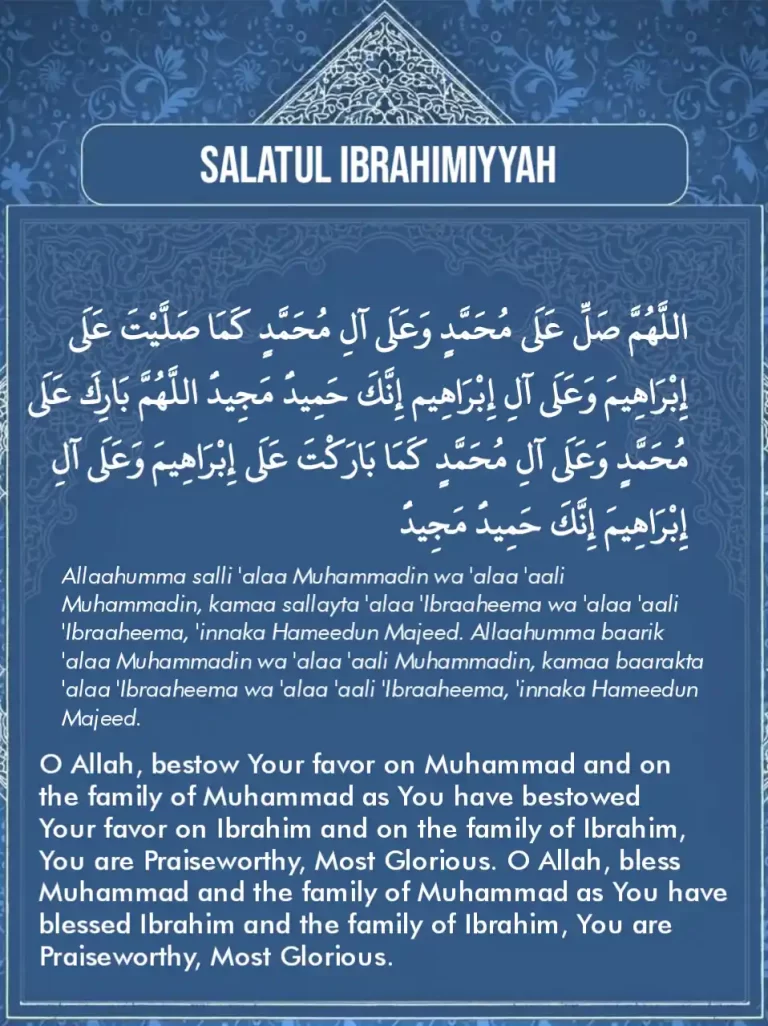Best Deeds In The Eyes Of Allah (Comprehensive List)
As Muslims, we strive to please Allah SWT by performing as many good deeds as possible and there are numerous best deeds in the eyes of Allah.
Advertisements
We perform good deeds in order to reap the benefits of success, ease, good health, and other blessings in this life, but most importantly, to achieve the ultimate reward that is Jannah, Paradise.
It is very important to know that every good deed that a person does may be part of that with which Allah will cause the balance of his good deeds to weigh heavily on the Day of Resurrection.
You may have observed that the Quran and the Ahadith are chock-full of ideas for how we can achieve these lofty goals through good deeds.
However, certain hadiths mention specific deeds that will count heavily in the doer’s balance on the Day of Resurrection.
Advertisements
In fact, the more you learn about the Quran and Sunnah, the more examples you’ll come across, particularly small deeds like greeting your Muslim brother or sister, performing dhikr, or removing a potentially dangerous object off a route!
This is because Allah SWT wants for us to have ease and success.
However, learning about all of these deeds can be overwhelming for many of us.
We begin with good intentions, making lists of all the things we could do to please Allah SWT and grow closer to Him, but we may end up doing very little, or even nothing at all.
Let’s take a step back and consider some of the best deeds in the eyes of Allah. Are you doing them already?
Advertisements
This isn’t a complete list!
All of the actions described below will only help us draw closer to Allah and please Him if we do them for Him and Him alone, not for the sake of pleasing others, pretending, boasting, or anything else.
List of Best Deeds in The Eyes of Allah
- Obedience
In Islam, obedience means listening to and obeying Allah’s commands in all circumstances, not just when it’s easy or convenient.
Advertisements
Being obedient to Allah SWT will reward you with many good deeds because you will be following Allah’s instructions to the letter.
This signifies that you are doing a good deed when you refrain from doing something that Allah SWT has forbidden.
This applies to everything in life, and many of the other good deeds we’ve listed below fit into this category as well, so one good deed might get you numerous awards.
2. Performing Obligatory Duties (Fard)
If you do not fulfil the required duties that Allah has established for us, you will find it impossible to draw closer to Allah.
Even more crucially, unlike most of the other activities listed below, which are deemed “voluntary,” failing to do our obligatory tasks without a sufficient explanation will result in us committing terrible deeds and sins.
As a result, it is critical that we first focus on meeting our commitments to Allah before attempting to perform more good deeds.
We also accumulate positive acts in our balance when we meet our duties.
Five pillars of Islam
Here are the five pillars of Islam:
- Stating that there is only one God, Allah, and that Muhammad is His Messenger (peace be upon him).
- Performing the daily five mandatory prayers (Salah).
- Giving out Zakat (obligatory alms-giving).
- Travelling for Hajj (pilgrimage to the Ka’bah in Mecca).
- Fasting during the month of Ramadan.
Other goods mandatory deeds include being good to our parents, upholding our family members’ rights, and so on.
3. Performing Nawafil Prayers
In Islam, Nawafil prayers are supererogatory prayers.
12 Sunnah Prayers Before And After Fard Prayers, for example, are supererogatory.
They are not considered obligatory, but they are intended to provide an additional benefit to the individual who performs them.
It was narrated by Imam Muslim that Rabi’ah Ibn Ka’ab reported that he spent the night with the Messenger of Allah (peace be upon him) and gave him water for his ablution and needs.
The prophet SAW said to him to ask for everything and Rabi’ah Ibn Ka’ab replied that he ask for Prophet’s companion in Paradise.
The Prophet said,
“Then help me do it for you by prostrating often.”
(Sahih Muslim 489)
The following are some of the Nawafil prayers:
- Night prayers, also known as Qiyam ul-Layl or Tahajjud, do not have a set number of rakaat; instead, you should pray as many as you can. Tahajjud is a term used to describe nocturnal prayers performed after any length of sleep and before Fajr. The messenger of Allah said that the best prayer one may perform apart from the mandatory prayers is one performed at night.
- Salat ud-Duha can be performed at any time during the day, after the sun has risen but before it reaches its zenith. This is the most commonly mentioned name in the narratives.
- Salat al-Ishraq: This is the “sunrise prayer,” or the prayer said around 20 minutes after the sun has fully risen.
- Tahiyyat ul-Masjid: the prayer to “great” the mosque, Allah’s House. When entering the mosque, this two-rakaat voluntary prayer is performed.
Four rakaat before and/or after the Dhuhr prayer.
According to Sunnah.
Whoever prays four Rak’at before and four Rak’at after the Zuhr prayer on a regular basis, Allah will forbid him (from entering) the Hellfire.
Four rakaat after Asr prayers, according to Asr Sunnah.
May Allah have pity upon a man who prays four before Al-Asr,” the Prophet (Peace and Blessings be Upon Him) stated.
(Jami at-Tirmidhi 430)
4. Learning and Reciting Quran
Muslims regard those who learn, recite, and teach the Quran as the best.
Our beloved Prophet (Peace and Blessings be Upon Him) said in a well-known Hadith:
“[Whoever recites a letter] from Allah’s Book receives the rewards from it, as well as 10 times the reward. I don’t say that Alif Lam Mim is a letter; nonetheless, Alif, Lam, and Mim are all letters.”
(Jami at-Tirmidhi 3158)
Imagine how many letters you’d read in just 10 minutes of daily Quran recitation!
There are numerous advantages to reciting the Quran.
We must do our best to recite the Quran, understand its teachings, refer to it whenever we are lost, and apply its lessons in our daily lives in order to draw closer to Allah.
5. Dhikr (Remembrance of Allah)
Allah Subhanahu Wata’ala says,
“So remember Me; I will remember you,”
(Surah Al Baqarah 158)
Allah promises that when we engage in the remembrance of Allah, He will remember us in return.
We gain a lot of good deeds by reciting dhikr (phrases that glorify and praise Allah).
It is possible to do it anywhere and at any time.
Prophet Muhammad (Peace and Blessings be Upon Him) once said to his companions.
“Shall I tell you about the best of deeds, the purest in the sight of your Lord, about the one that is of the highest order and is far better for you than spending gold and silver, even better for you than meeting your enemies in the battlefield where you strike at their necks and they at yours?”
The Companions answered
“Yes, O Prophet of Allah!”
The Messenger of Allah, Peace Be Upon Him, said
“Remembrance of Allah”.
(Jami at Tirmidhi 3377)
The following are some examples of dhikr phrases:
- Tahleel, or saying Laa ilaaha ill Allah (there is no god but Allah). This is the deed that will weigh most heavily in the balance.
- Suhaan Allah.
- Subhaan Allahi wa bihamdihi, subhaan Allahil Azeem.
- Astaghfiru Allah.
- Laa hawla wa laa quwwatta illa billah.
- Alhamdulillah.
- Laa illaha illAllah. Allahu Akbar.
- Regularly reciting azkar after the obligatory prayers.

6. Making Dua (Supplication)
In the Quran, Allah SWT says:
Call on Me. I will answer your prayer, but those who are too arrogant to serve Me will surely find themselves humiliated in Hell.
Making dua entails supplicating, or turning to Allah and asking for His assistance in all matters.
You can make dua for any issue, no matter how big or minor it is.
Due to the importance of supplication (du’a’) in our deen, Prophet Muhammad (PBUH) is reported to said that Supplication (du’a’) is itself the worship.
Allah loves to listen us plead and ask for His assistance and rewards us whenever we do so.
So, by making dua, you’re getting Allah’s blessings as well as the good deeds that come with it.
7. Voluntary Fasting
Because Ramadan is considered Fard, Muslims are required to fast during this month (obligatory).
Those who fast outside of the Ramadan month voluntarily receive additional good deeds from Allah SWT.
On Mondays and Thursdays, Prophet Muhammad (PBUH) used to fast, and he also recommended us to fast on the three white days:
Reported by Qatadah Ibn Malhan al-Qaysi, the Messenger of Allah SAW used to command the Muslim to fast on the days of the white (nights): the thirteenth, fourteenth, and fifteenth of the month.
(Sunan Abi Dawud 2449)
8. Making Tawbah (Repentance)
When a person sins and then honestly seeks forgiveness from Allah, this is known as tawbah.
When we make tawbah, Allah, the Most Compassionate and Merciful, rewards us generously and pledges to pardon anybody who turns to Him truly, no matter what they did.
And whoever does a wrong or wrongs himself but then seeks forgiveness of Allah will find Allah Forgiving and Merciful.
(Surah An-Nisa 110)
- Repentance is a beautiful deed that purifies the soul and brings the servant closer to Allah.
- It removes the burden of shame from the heart.
- It prevents one from succumbing to one’s appetites and passions while also strengthening one’s faith.
9. Avoiding Haram (Prohibited) things
There are several things that Allah has forbidden us from doing.
These things pertain to numerous parts of life such as eating, social connections, marriage, business, inheritance, and even clothing.
We not only avoid falling into sin by staying away from what is forbidden, but we also obey Allah SWT and follow His commands, which means we are doing a good deed.
As a result, the more we resist from engaging in prohibited things and behaviour, the more good actions we gain.
Other activities are despised or discouraged (makruh), and while we would not legally be sinning if we did so on occasion rather than on purpose, we would be rewarded if we chose to refrain from doing so.
Allah Knows Best
May Allah Grant Us Success..
Advertisements







